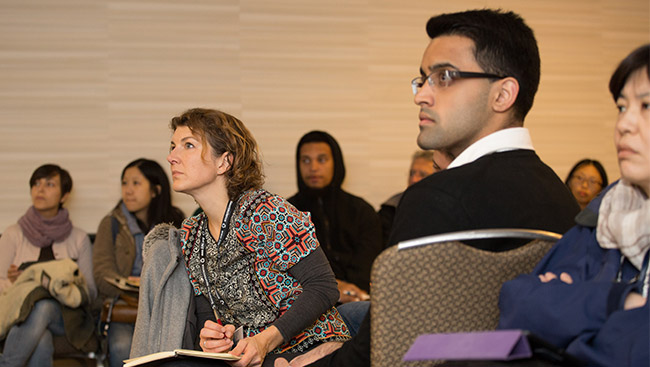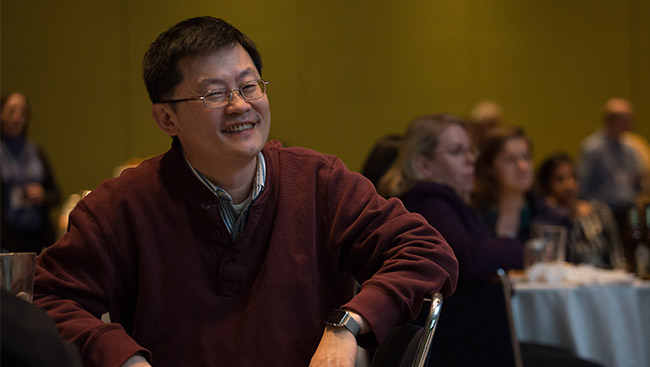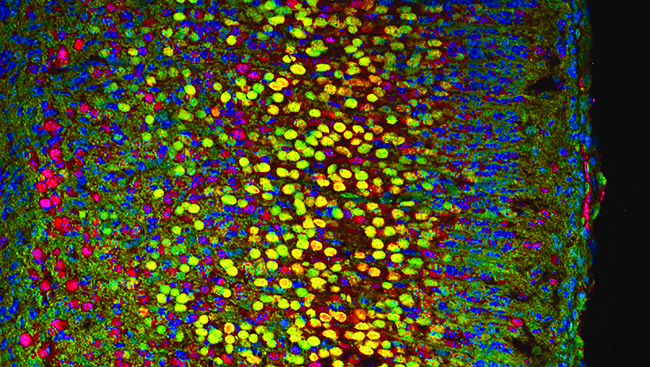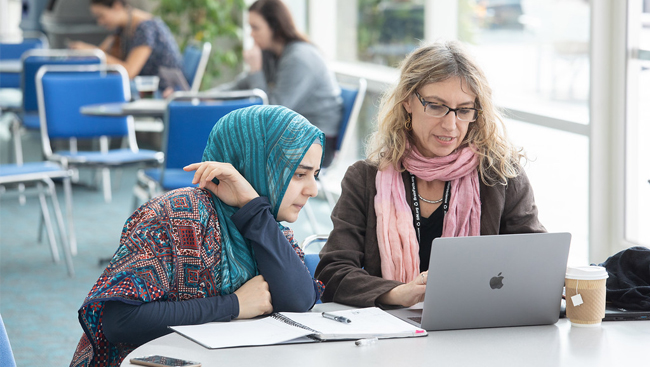A Dean of Students on How to Strengthen Trainees’ Skills for Diverse Careers
- Featured in:
- Training for Diverse Career Paths
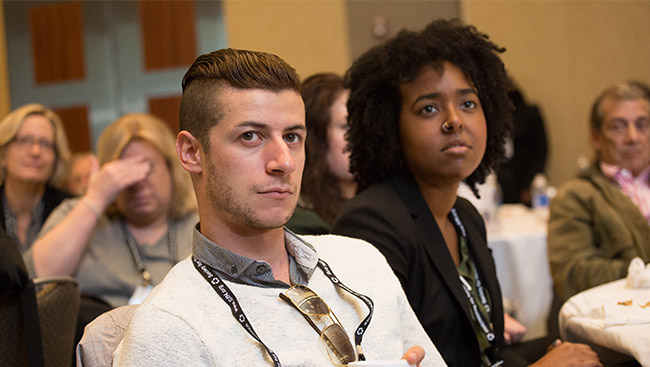
Victoria Prince is the dean for graduate affairs in the biological sciences division at the University of Chicago. As a co-PI on her university’s Broadening Experience in Science Training (BEST) Award, Prince works to ensure that trainees are well-equipped to pursue various career paths. Here, she discusses how.
Why do you think it’s critical that institutions prepare students for a range of academic and nonacademic careers?
Only about a quarter of our students can expect to become academics, so it behooves us to prepare our students more broadly. If we don't, our institutions are no longer going to attract the best students. Students are becoming sophisticated consumers of their education and are seeking out programs offering broad education.
Fortunately, graduate programs to a large extent are already training students for a range of careers. Inherently, PhD training develops many transferable skills such as communication, teamwork, and an ability to synthesize large amounts of complex material.
What programs tend not to realize is how they are already preparing students broadly. Once they and trainees are aware of that, they can build upon those skills to help trainees be ready for a fuller range of careers, such as biotechnology, communications, publishing, editing, research administration, policy, and regulatory affairs.
How does your institution approach building skills for different workplaces, and professional development more broadly?
The University of Chicago is one of 17 institutions that received a Broadening Experience in Science Training (BEST) Award. I am one of four co-PIs, and we have a larger steering committee. We worked hard to get that on the ground because we believe that it is critical to do a better job training our students and postdocs for the full range of available careers.
Our program is called myCHOICE (Chicago Options in Career Empowerment). We run a seminar series where alumni and friends of the university talk about their career trajectories and how trainees can best prepare themselves to move into those areas. We offer mini courses, some on professional development, and others on particular career areas. We provide externships where our students shadow people in different careers for 1-5 days. We have part-time internships where students work 10 hours per week in offices around campus to gain experience in research administration and communications. In the future, we hope to establish full time internship opportunities, primarily with industry partners.
Can you tell how your program is making an impact on the trainees’ ability to navigate different career options?
Part of the BEST funding process is evaluation, so we constantly survey trainees on what they are learning. We know that they find our program extremely valuable, feel more confident about their future opportunities, and make more informed choices about how they move forward with their careers. In the long-term, we will find out if the students feel more satisfaction in their careers.
We also gauge success through individual anecdotes. For example, my postdoc decided to be a medical writer, and it was through connections she made via LinkedIn and our alumni network that she found her job.
Do you have any recommendations for PIs on how they can foster an environment that welcomes various academic and nonacademic career choices?
The single most important thing that professors can do is signal that they are not judgmental about career choices. Professors mostly do not have any expertise in areas outside of academics, but if they are willing to talk to their trainees about their aspirations, that can be really beneficial. I would recommend that they make use of individual development plans (IDPs) as an ice-breaker to get that conversation going.
The trainers can also take opportunities to tell their trainees about the career trajectories of other people they know. If they talk about somebody who went to NIH to be a program officer or somebody who does research in industry, and they do that in a positive way, it opens up a conversation that can allow the trainer to understand their trainees’ goals. And if they know those goals, they can help them achieve them.
Additionally, with most faculty having previous trainees go into a range of careers and former colleagues who have left academia, if they are willing to connect their current trainees to those previous trainees, that alone can help students and postdocs develop broad networks and learn about opportunities.
As a dean of students, I have become increasingly aware of how anxious trainees can be about their futures, so having empathy can be really important. We actually see some students deliberately delay graduation because they don't know what they are going to do next. Understanding that and helping students to think through their best pathways not only leads to happier students but can also lead to more productivity.
Do you see a role for institutions at large to assist in educating about diverse career options?
Institutions can help the faculty to be better prepared as broad mentors to their students by providing them with good information and talking points. Many faculty have really focused on their research —as they should — and are not fully aware of the job market for trainees. Institutions and graduate programs can encourage faculty to learn more and can explain how tools like IDPs can open up conversations.
The way we train PhDs is still an apprenticeship program where a student works closely with a mentor. We need to encourage our trainees to use a mentoring team and to not assume that their primary faculty member is going to provide all of the mentoring they need. Reciprocally, we need to let faculty know that it is okay that they can't meet all of those needs, and that career advisers, training grant directors, alumni, and fellow students can help.
I think most institutions understand that they need to provide career counseling services, and if both faculty and students are giving feedback about the need for more robust career training, then the institutions will respond by providing that. This doesn't have to be limited to neuroscience or even to biology. Because a lot of career development tools go across universities’ full spectrum of education at the graduate level, they can be quite centralized.
Interview edited for length and clarity.
Speaker



